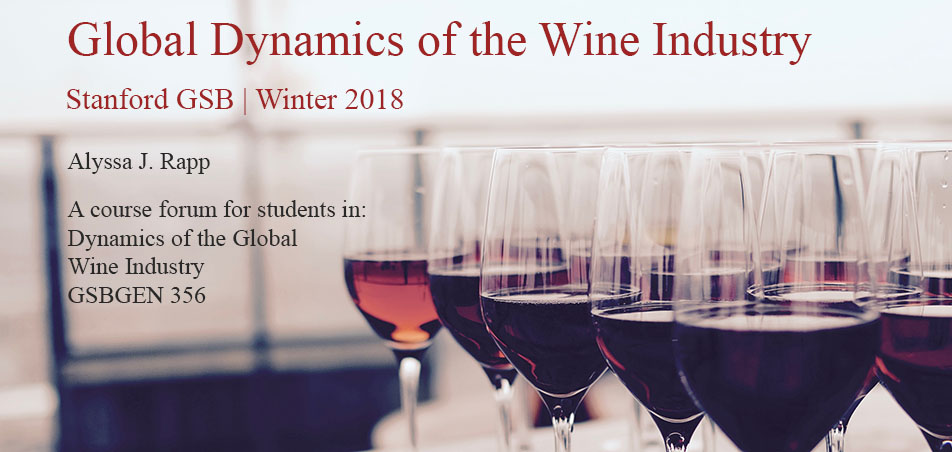What does biodynamic mean?
According to Wine Folly, biodynamic viticulture "is the practice of balancing this resonance between vine, man, earth and stars." Gee, this sounds more like the mantra of a Portlandian Yoga master than a wine-growing technique. After reading through the article and a few more hits from Google, I concluded that biodynamics more closely resembles a philosophy and way of life than a scientific study. Biodynamics practitioners believe that wine growers should coexist harmoniously with the land, the water, and the vines. Any use of artificial chemicals from fertilizing the soil to getting rid of weeds and bugs to increasing the shelf life of wines is strictly prohibited. The grapes should be grown and harvested in the most "natural" way, and made with ultimate care and passion. There is even a "biodynamic calendar" that categorizes days by Fruit, Root, Leaf, and Flower Days, each representing the optimal day to harvest, prune, water, and do nothing in the vineyard. (1)
What is Coulee de Serrant?
Coulee de Serrant is a vineyard and appellation of its own in Savennieres, which is in turn a region and appellation in the Aujou-Saumur region in Loire Valley, France. The history of Coulee de Serrant goes back to the 12th century, when Cisterian monks first started growing grapes on the picturesque slopes situated by the Loire river. The current owner, Nicolas Joly, took over the vineyard from his family in 1977, and started implementing biodynamic farming in the early 1980s. Since then, no synthetic chemical products or pesticides have ever been used on the property. (2)
Savennieres is known for its zesty and refreshing white wine made from Chenin Blanc, with distinctive notes of honey, white flowers, lime, and a balanced dose of earthiness. Coulee de Serrant is also made with Chenin Blanc, but with a drastically different profile. The grapes are harvested with botrytis infection (a desired fungus that increases sugar concentration in grapes) but fermented in a dry style. Due to Joly's distrust of modern techniques and additives, his wines are made in an "oxidized" style that shows characters such as golden color and jammy fruit flavors. The wines should be decanted or aired extensively (sometimes up to days) for optimal flavor profile.
So... What does it taste like?
I've never tried a bottle of Coulee de Serrant (it retails at $100+), but I am very much looking forward to. That said, there are clearly lovers as well as opponents of Joly's winemaking style out there. This post from GuildSomm laments the deteriorating quality of Joly's wines and argues that the bottles really should not be worth that much. In the comments section there are several well-argued posts in support of the criticism, although there are also dissenters who enjoyed the wines very much (..."I got a really rich bouquet of bees wax and honey..the next 2 hours lovely lemon zest..." (3)). I guess the jury is still out on biodynamic wines - I'll have to try a bottle some day to be the judge myself!
Sources:
(1) Wine Folly website, "Getting into Biodynamic Wine" http://winefolly.com/review/biodynamic-wine-guide/
(2) Vineyards of the Coulee de Serrant website, https://coulee-de-serrant.com/en/home/
(3) GuildSomm, "Nicholas Joly and Oxidization as a Winemaking Style", https://www.guildsomm.com/4cb697f52c/discussion_forums/f/general-discussion/1608/nicolas-joly-and-oxidization-as-winemaking-a-style

No comments:
Post a Comment